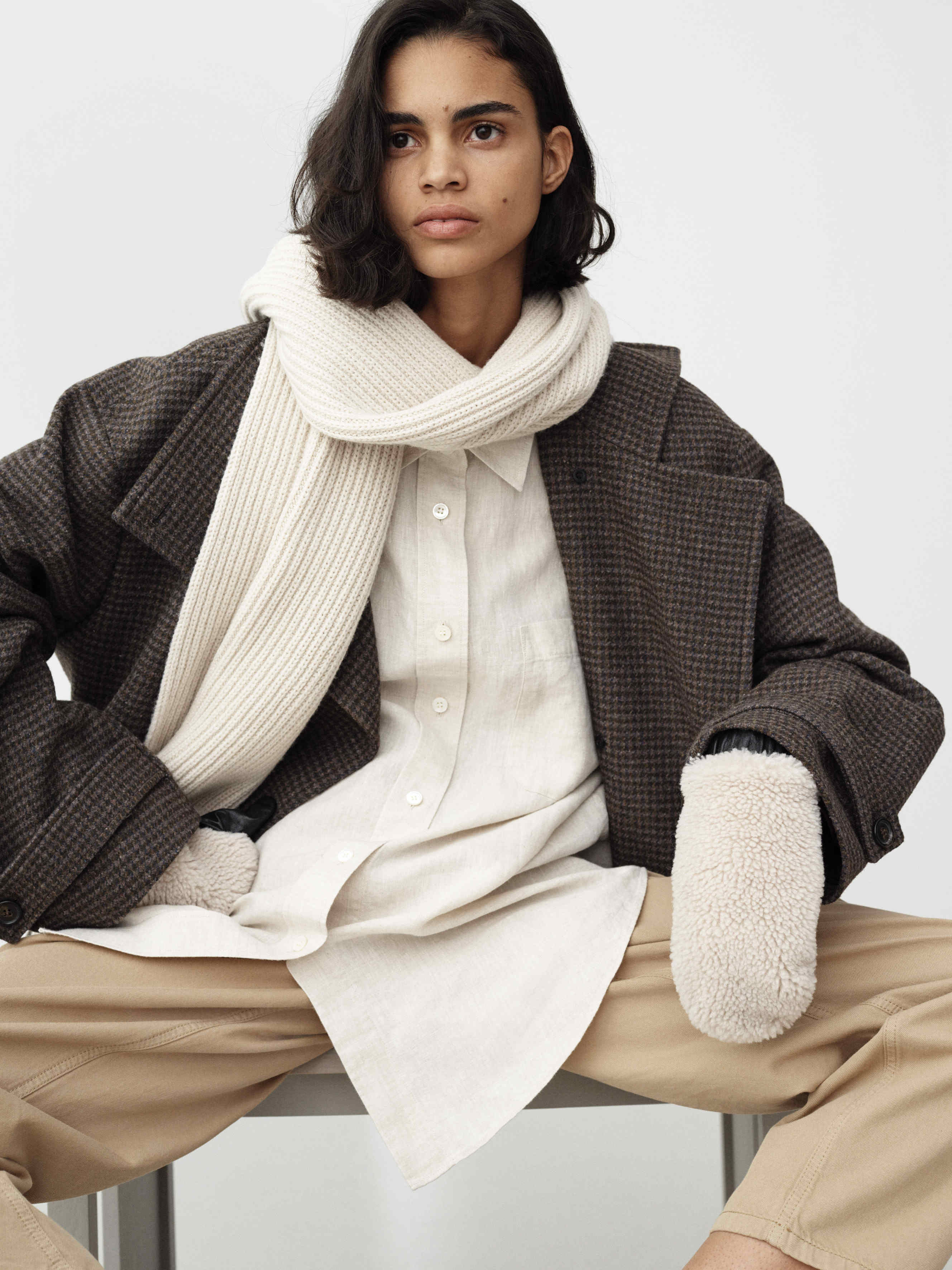The fast fashion industry that has entered a period of reflection no longer has to look for purchasing agents. H&M’s Nordic lifestyle brand ARKET and women’s fashion brand &Other Stories announced that they will open physical stores in China.
It is understood that ARKET will open a flagship store in Beijing in the fall of 2021. This is also the first physical store after ARKET opened a Tmall flagship store and WeChat mall in August 2020.
ARKET is headquartered in Stockholm, Sweden. It is a Nordic fashion lifestyle brand and modern market integrating men’s, women’s, children’s clothing and home furnishings. In addition to clothing, shoes and hats, the shop also has a selection of fashion, food, perfume, beauty and functional household products.
ARKET2020 autumn and winter series
And & Other Stories is now on WeChat Mall in January. The brand will open the country’s first offline store in the iapm mall in Shanghai in the fall of 2021. Founded in 2010, & Other Stories was founded by a small group of creative people who are committed to fighting for free expression for women. Currently & Other Stories has design studios in Paris, Stockholm and Los Angeles, covering products such as ready-to-wear, accessories and shoes.
& Other Stories
According to Luxe.Co, H&M Design Director Pernilla Wohlfahrt said, “Opening new stores provides us with more opportunities and welcomes more people to come to usIn the world, we invite them to experience our rich and diverse products, including exquisite fabrics, fashionable designs, home decoration inspired by nature, sustainable children’s clothing and Swedish cuisine. “
In sharp contrast, in recent years, domestic overseas fast fashion brands have chosen to withdraw stores in order to reduce losses. In January this year, Spanish fashion giant Inditex announced that it will close all Bershka, Pull&Bear and Stradivarius offline stores in China within one month at the earliest, and only retain e-commerce channels such as the official website and Tmall flagship store. In March of this year, Old Navy, a brand of Gap Group, announced its official withdrawal from the Chinese market.
Some analysts pointed out that 2018-2019 is a watershed for the development of overseas fast fashion brands in the Chinese market. The business of H&M and GAP in China has declined significantly. In 2018, sales decreased by 3.0% and 18.2% respectively. The sales growth rate of Inditex, the parent company of ZARA, also began to slow to 9.2%. British high street brands TOPSHOP and NewLook in 2018 Announcing its withdrawal from China, Forever21 announced its withdrawal from China in April 2019. H&M, which was looted in China in 2007, announced that it has temporarily closed 80% of its stores worldwide.
In the “fast-paced” competition, these overseas fast fashion brands seem to be in “collective decline.”
According to the Beijing Business Daily, Yang Dayun, the founder of the Sustainable Fashion China Alliance, once said, “Brands with stronger IP attributes such as Uniqlo and MUJI have a huge impact on brands like Bershka, and with the rise of Internet consumption, Consumers have a wider range of choices, and Internet celebrities and Guochao provide consumers with more cost-effective choices.” With the rapid rise of e-commerce platforms and the dual background of Guochao products and foundries occupying the consumer market, overseas fast fashion brands seeking new breakthroughs in the Chinese market have become a top priority.
Under this background, the fast fashion brands represented by Inditex chose to reduce the number of stores of similar brands on the basis of retaining the core competitor brand ZARA, and the way of moving to online transactions was steadily seeking change.
H&M chose its brands ARKET and &Other Stories to open physical stores in China, which is to promote new brands to join the crowded fast fashion market competition.
Alistair Wittet, one of the shareholders of Inditex Group, once said, “Customers are changing their shopping habits. They are more willing to shop online than in secondary malls. But they are still watching all aspects of the super flagship store.”
ARKET has set up its physical store in Beijing and &Other Stories has chosen to set up its physical store in Shanghai. From the choice of store location, you can find that H&M is sending the development of its sub-brandsHope that it will be based on the purchasing power of consumers in domestic first-tier cities. In particular, the new crown epidemic has caused an obvious two-level differentiation in China’s fashion consumption field. Related surveys show that 54% of high-income people said they still spend money on providing high-quality and functional products.
In addition to identifying the consumer group, H&M chose ARKET and &Other Stories, which feature the main “life collection store”, to provide consumers with a one-stop service and sell a complete set of Nordic lifestyle habits and fashion styles.
At the beginning of its establishment, Arket defined itself as a lifestyle brand. In addition to men’s, women’s and children’s clothing, consumers can also find home and fashion magazines in the store. Some stores will also have cafés. In addition to selling Nordic cuisine and freshly brewed coffee, they will also cooperate with local bakeries and fruit shops to launch vegetarian menus.
In addition to women’s clothing products, the & Other Stories store also sells shoes, bags, jewelry and accessories. Its hand cream has long been recommended by bloggers in Xiaohongshu and has become a hot-selling item in the brand’s beauty line. Domestic consumers call it “pigment hand cream”.
& Other Stories Hand Cream Xiaohongshu Note Screenshot
At such a time node, H&M chose to use ARKET and &Other Stories to explore new paths in the market competition of China’s fast fashion industry. How effective is it? It remains to be seen how the store will perform in the future.


